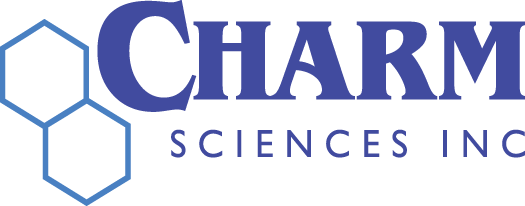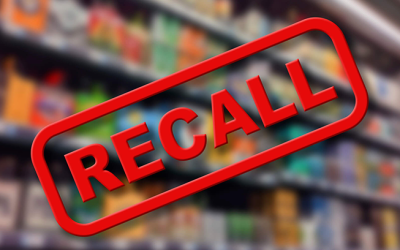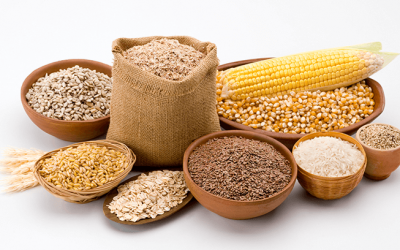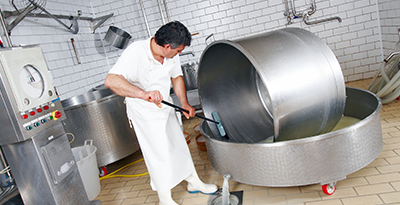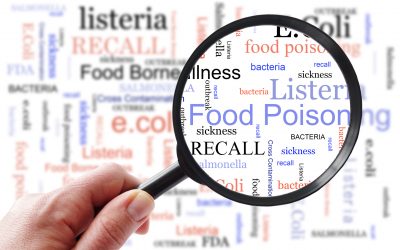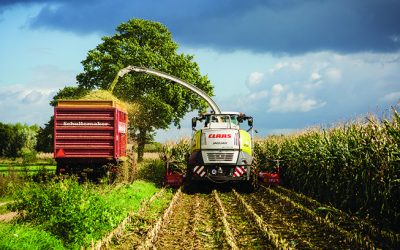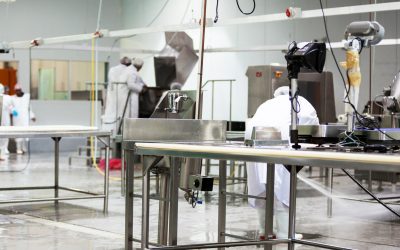Blog
ATP Testing Overview
ATP Testing Overview ATP testing is a quick and reliable method for verifying cleaning techniques and safeguarding the microbial quality of your facility and products. By following a comprehensive ATP testing guide, you can effectively assess cleaning techniques and...
Creating Food Safety and HACCP Plans
Creating Food Safety and HACCP Plans Food safety encompasses many procedures to keep raw materials and processed foods safe for human consumption. HACCP and Food Safety Plans are essential aspects of a food safety system. Learning how to create a HACCP or Food Safety...
Environmental Monitoring with Indicator Tests: Prevent Quality Headaches in Real-Time
Preventing Food Recalls An article in Food Safety Tech by Jeff Clinton, What Food Manufacturers Can Learn from the Baby Formula Recall, discusses costly lessons learned from recent food recalls. Among the recommendations are having a robust sanitation program and...
Preventing Food Recalls
Preventing Food Recalls Food recalls present a significant challenge to food production operations. While companies strive to use resources throughout their supply chains efficiently, they face gaps in processing, contamination, which lead to costly recalls, loss of...
Managing Mycotoxins in Feed Mills
Managing Mycotoxins in Feed Mills Certain molds and fungi produce mycotoxins — toxic compounds that lead to adverse effects in animals and humans when consumed. Many commodities such as grains, flours, rice, and corn are susceptible to mycotoxin contamination, and...
Best Practices for Testing Zearalenone
Best Practices for Testing Zearalenone Zearalenone has been identified as one of three significant mycotoxins to be on the lookout for during the 2022 harvest. Zearalenone, along with Aflatoxin and Deoxynivalenol (DON), has been found to have a higher prevalence of...
Sanitation in the Hotel Industry
Sanitation in the Hotel Industry Maintaining customer loyalty and confidence in the hotel industry means staying on top of sanitation practices. Disinfecting hotel rooms, frequently touched areas, and common spaces ensure guests remain healthy as we begin to travel...
Biofilms and Their Relationship to ATP
Biofilms and Their Relationship to ATP Biofilms are the unseen curse that can wreak havoc on a quality system. They are the bane of the existence of food Quality Managers. As a Quality Manager, you create a Food Safety Plan comprised of Standard Operating Procedures...
Preparing for the FDA New Era of Smarter Food Safety
Quality Lab Proficiency Testing - Once a Best Practice; Now a Standard Requirement The FDA embarked on a new endeavor, “Smarter Food Safety,” that is becoming a reality. It all started with a vision, and the blueprint has now been published and has begun to take...
Quality Lab Proficiency Testing – Once a Best Practice; Now a Standard Requirement
Quality Lab Proficiency Testing - Once a Best Practice; Now a Standard Requirement With food safety standards continuing to evolve in the modern FSMA world, and with the FDA’s release of the New Era of Smarter Food Safety Blueprint, all food safety and quality...
How ATP Testing Advances the Hospitality Industry
How ATP Testing Advances the Hospitality Industry Although the hospitality industry has strengthened its cleaning practices, consumers must be confident that these more stringent protocols are truly effective. According to AAA research, 76 percent of customers would...
Mycotoxin Forecast for the Rest of 2021
Mycotoxin Forecast for the Rest of 2021 The last few years have seen higher than usual levels of Vomitoxin, or DON, and Aflatoxin and 2021 is shaping up to be no different. 2021 is primed to be above average for Aflatoxin and DON because of one simple reason:The...
The Art of Grain Sampling
The Art of Grain Sampling Whether it's for human food or animal food, grain is an extensive industry that impacts almost everyone in some way. That is why it's critical to ensure grain products are as high quality as possible. It all starts with a proper sampling. It...
The Devil is in the Details of Sanitation Verification
The Devil is in the Details of Sanitation Verification Is there a part of your facility that will invariably give you a migraine? Sanitation verification is a vast subject, and there is a multitude of options. You can verify the effectiveness by using adenosine...
How to Choose the Best Antibiotic Test for Your Raw Milk Receiving
How to Choose the Best Antibiotic Test for Your Raw Milk Receiving It’s tough deciding which antibiotic test you should choose. Let’s be honest, there are a ton of variables in making the decision, and all can impact human health, time, costs, and product production....
How Often Do You See Random Microbial Spikes?
How Often Do You See Random Microbial Spikes? A random micro spike has just occurred on your finished product. The root cause investigation shows that nothing has changed in your sanitation process, there has not been any personal turn-over, and nothing has changed...
Environmental Monitoring Program
Environmental Monitoring Program More food facilities are creating and upgrading their environmental monitoring programs (EMP) due to an increasing emphasis from government agencies on locating and controlling food hazards and contaminants. The FDA Food Safety...
Are All ATP Luminometers Created Equal?
Are All ATP Luminometers Created Equal? I have a question for you. Do you feel like your ATP program is adding value to your product quality and sanitation procedure? If your answer is ‘we consistently get low relative light units (RLU), but we have elevated bacteria...
Adult Nutrition Drinks
Adult Nutrition Drinks The market for nutrition drinks worldwide is forecast to show an accelerated growth rate over the next seven years. The reasons for this rise include a greater focus on health consciousness, minimizing chronic health issues, evolving drink...
Mycotoxins in Animal Feed
Mycotoxins in Animal Feed Mycotoxins are toxins that occur naturally, are generated by particular molds (fungi), and appear in food. They can be the source of various negative health effects and can be a significant health danger to livestock, horses, companion...
Food Safety in Review
Food Safety in Review According to the World Health Organization (WHO), foodborne illnesses cause an estimated 600 million people to fall ill each year, which is almost one in every ten people worldwide. They estimate that 420,000 people die each year, with 40% of...
The Criticality of Environmental Sampling
The Criticality of Environmental Sampling Although the United States is known for having one of the safest food and beverage supplies globally, illnesses with a foodborne base persist in the country. These foodborne illnesses affect millions and cause the deaths of...
The Striking Ascent of Ready-to-Drink Coffee Beverages
The Striking Ascent of Ready-to-Drink Coffee Beverages If there is a time for ready-to-drink (RTD) coffee beverages, it is now. Not only supermarkets but also convenience stores, quick-service restaurants, and even gas stations are stocking many new varieties of RTD...
Sanitation Verification Using Environmental Monitoring with a Corrective Vector Sampling Strategy
Sanitation Verification Using Environmental Monitoring with a Corrective Vector Sampling Strategy Despite having one of the safest food supplies in the world, the United States is still prone to foodborne illness outbreaks, which can sicken and potentially kill...
Changing Landscape Between Dairy and Dairy Alternative Beverages
Changing Landscape Between Dairy and Dairy Alternative Beverages Within the past decade, plant-based dairy alternatives have increased in worldwide demand. The 'Global Plant-based Beverages Market' report valued the plant-based beverage industry at USD 11.16 billion...
Understanding Mycotoxins and Predicting Risk in a Changing Climate
Understanding Mycotoxins and Predicting Risk in a Changing Climate According to NASA, the Earth's average temperature has increased by 1.9 degrees Fahrenheit since modern recordkeeping began in 1880. Average global temperatures in the last four years have been the...
Sanitation Verification is the Proactive Foundation to Wholesome Food Production and Food Safety
Sanitation Verification is the Proactive Foundation to Wholesome Food Production and Food Safety Sanitation programs with frequent verification in food plants are the foundation to microbiological or allergen hazard control. Responsible individuals perform...
Prerequisite to FSMA is Sanitation
Prerequisite to FSMA is Sanitation The Food Safety Modernization Act (FSMA) focuses on prevention—and sanitation efforts are a key part of your success in complying with FSMA regulations. In this post, we will take a detailed look at why sanitation efforts...
An Ounce of Prevention: The Food Safety Act Wants to Catch Outbreaks Before They Start
An Ounce of Prevention: The Food Safety Act Wants to Catch Outbreaks Before They Start Food safety inspections are an important part of the industry that grows, produces, and distributes our food. About one in six Americans—around 48...
Challenges When Testing for Enterobacteriaceae
Challenges When Testing for Enterobacteriaceae In the food and beverage industry, there are few things as important to quality and reputation as microbial safety. The Centers for Disease Control and Prevention (CDC) estimates that each...
